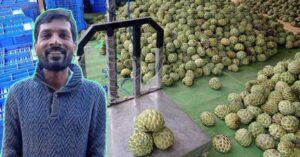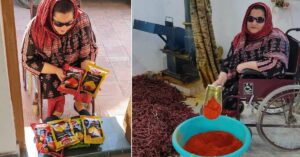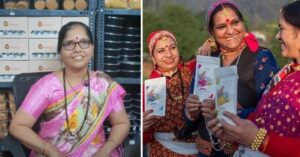Woman Carries On Family’s 160-YO Legacy Of Making Perfumes, From India to France
Lucknow-based Vidushi Vijayvergiya launched Isak Fragrances to continue her family's business of making and selling perfumes. These fragrances are artisanal and vegan, and aim to popularise the forgotten trend of Indian perfumery.
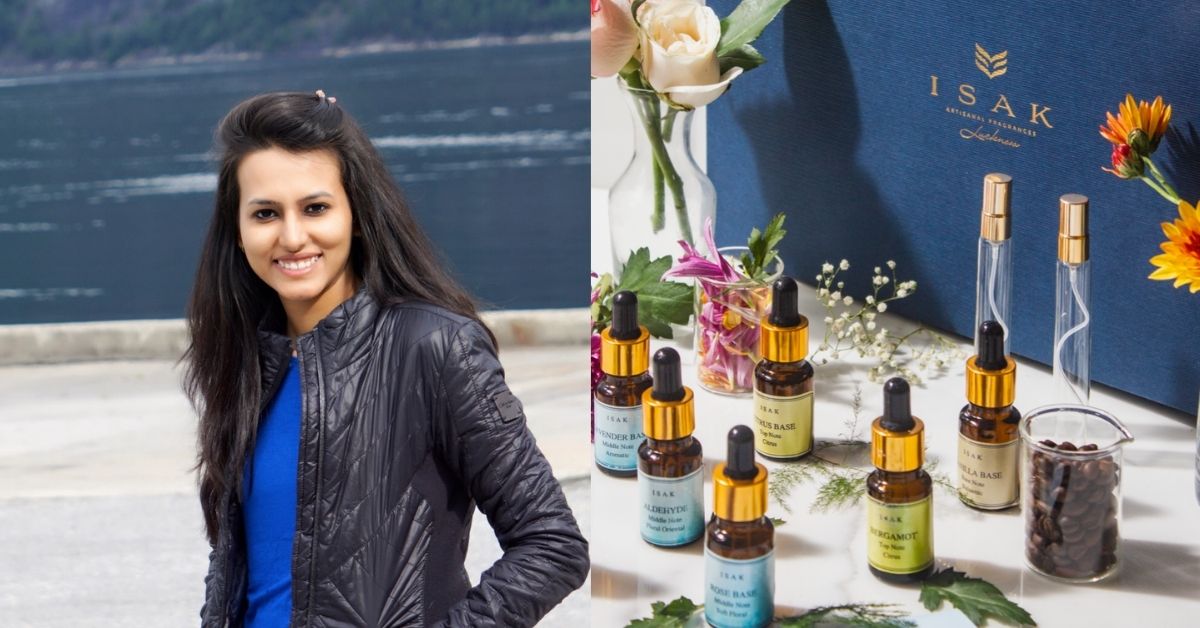
In the 1850s, Shri Chunnamal Vijayvergiya, a perfume enthusiast, moved from Rajasthan to Lucknow in search of better opportunities. At the time, the land of the royals was the place to be for perfumery. With a penchant for creating exquisite and aromatic scents, it didn’t take long for Shri Chunnamal to entice the Nawabs and Rasookdars (ministers) of Awadh with his collection of natural attars.
Shri Chunnamal’s perfumes soon became a hit among the royals. With his son, Ramdayal Vijayvergiya, he began sourcing essential oils, spices, and other such ingredients from across India to produce bottled fragrances. Around the 1930s, Shri Chunnamal’s grandson, Gaurishankar, began exporting these oils and fragrances to foreign markets, and from here, the business grew. By the 1950s, this century-old perfume business was finally incorporated as CMRD (Chunnamal Ramdayal) Agencies by Vasudev Vijayvergiya, the 4th generation owner of the family business.
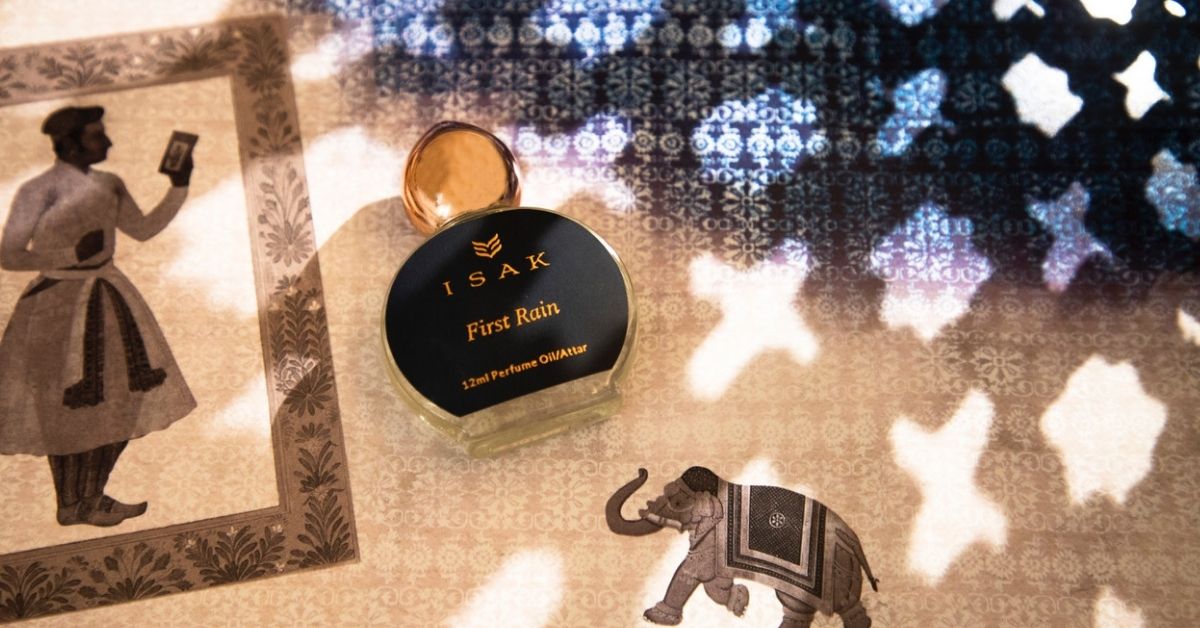
Today, in the 21st century, 39-year-old Vidushi Vijayvergiya, granddaughter of Vasudev, is manning the operations of her family’s 160-year-old legacy — the first woman in her lineage to do so. In 2017, she re-launched her family’s brand under the name Isak Fragrances, which sells a variety of handcrafted, vegan, and artisanal perfumes.
Unable to view the above button? Click here
Popularising an ancient art
Vidushi was born and raised around perfumery and spent much of her time in her father’s brick and mortar store in Lucknow. She says she was always a bit of an introvert, so after school, she’d head straight to the store, where her father would encourage her to interact with the customers coming in, or with the people around the shop.
After completing a course in luxury and lifestyle business management from IIM-A, Vidushi did a course on aromatherapy from Switzerland. However, she says joining her family’s business was never her original plan. Instead, she began her own venture to promote chikankari.
“I always kept myself up to date with the happenings in the perfume industry, solely out of interest. But as things progressed, I realised that my family needed my help in running the business,” Vidyshi tells The Better India.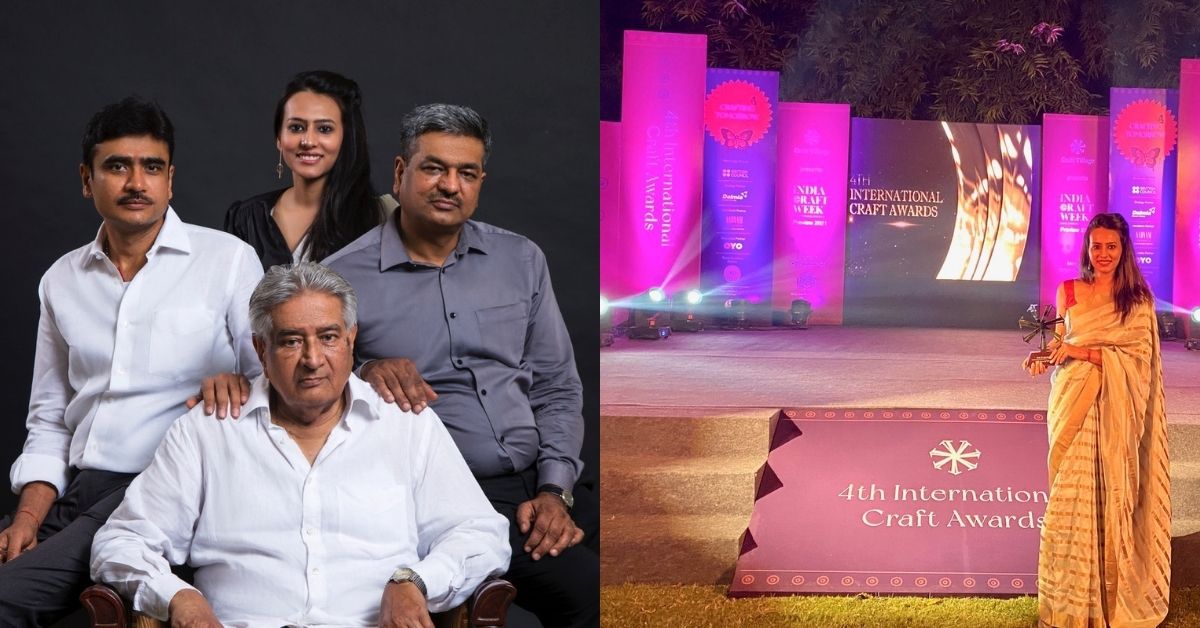
While Shri Chunnamal’s perfumes had been a hit with the royals at the time, the popularity of Indian perfumes deteriorated as French and other foreign perfumes entered the market. Aware of the perception that these imported brands are superior to Indian ones, Vidushi says she wanted to popularise homegrown fragrances.
“Indian perfumery is an ancient art, and very beautiful. Our fragrances and styles are very unique and authentic. It was just a lack of awareness and a general perception in India that things that come in from outside are of better quality.”
“My legacy gave me the platform to make Indian perfumery more known. Isak was launched to initiate a conversation about why Indian perfumery should be chosen, why we’re distinct, why it’s suitable for tropical climates such as ours, and what kind of ingredients the country produces. In fact, so many people didn’t know that international perfume brands get much of their ingredients from India,” she says.
From the royal courts of Awadh to France, London, and more
Vidushi began her business with help from her chachi, and utilised resources from her chacha, Vishal Vijayvergiya. “I started Isak to take the business forward in a way that would be both profitable and help commercialise our fragrances,” she says. “The name of the business has changed over the years — during my great-grandfather’s time, it was called Vijayvergiya Industries, and the name was later changed to CMRD Agencies. My father takes care of the store under the CMRD name. It’s a tiny store in an old part of the city.”
It was around the 80s that the Vijayvergiyas began supplying to retailers — up until then, they were mostly selling to industries directly.
“My great-grandfather would spend months in the distillation plant in Kannauj. Creating attars and shamamas is a very lengthy process, which needed to be done directly at the source from where ingredients were coming in,” she adds.
Today, Isak ships to various parts of India, as well as internationally, including France, London, Ireland, Australia and the Middle East.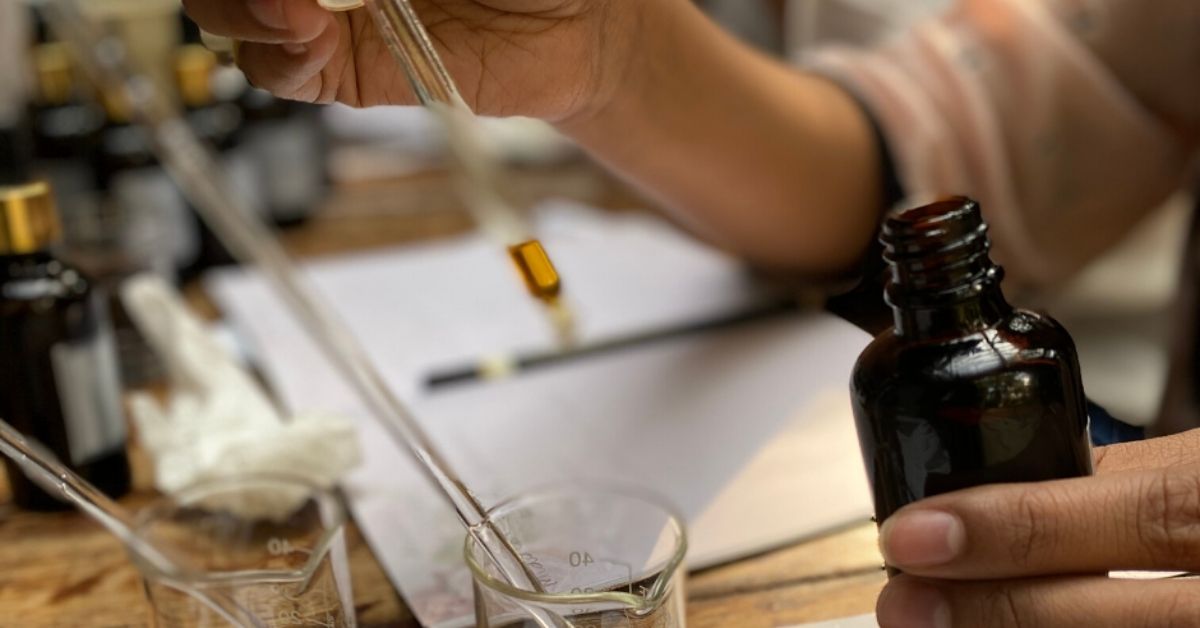
“We’re not a very big company, but trying to stay true to our roots,” Vidushi says. The initial investment came from her and her chachi’s investments. The preliminary setting up of a lab, sourcing raw materials, and arranging a workforce was shared with the family’s existing business. Now, as Isak has grown, it’s slowly becoming a little more independent with its own set-up.
Speaking of the challenges she faced along the way, Vidushi highlights how it was initially hard for her family to stomach that a woman wanted to take the otherwise male-dominated legacy of the business forward. “It was a bit of a challenge to convince my father to let me start a business of my own. Of course, now he’s come around. Even in our extended family, there were questions such as ‘Why do you have to start a business?’, because I’m a daughter. A lot of people have assumed that this is my husband’s business, because they have a hard time accepting that a woman can run a business or work even after marriage. People often wonder why I’m continuing to run a venture with my father despite being married.”
Vidushi has also faced resistance from customers who don’t take her seriously initially but says they come around once they hear the knowledge and prowess that she possesses.
Making the right scents
Other than the challenges of being a woman entrepreneur, she says, “Perfumery requires a lot of marketing for people to talk about the product. It’s not like you can just click and upload a photo and people will understand what the fragrance is. So presenting it in the right way, so people understand what the aroma is like, is challenging. It’s also an expensive process, and since ours is a bootstrapped venture, it makes things a little harder.
Isak has two collections — the Signature Collection, and the Royals of Awadh Collection. These include scents of lavender, patchouli, sandalwood, musk, rose, jasmine, saffron, lemon, clove, nutmeg, ambrette seeds, oudh, and agarwood, to name a few. Isak also offers a DIY kit to personalise the perfumery experience.
Delving into a few details of the uniqueness of these ingredients, Vidushi says, “One of the oudhs we use comes from Assam, extracted from the agarwood tree. It’s actually the infected part of this tree that gives the oudh. The tree has to be at least 20 years old to be infected. Our clove comes from Kerala, and jasmine comes from Madurai.”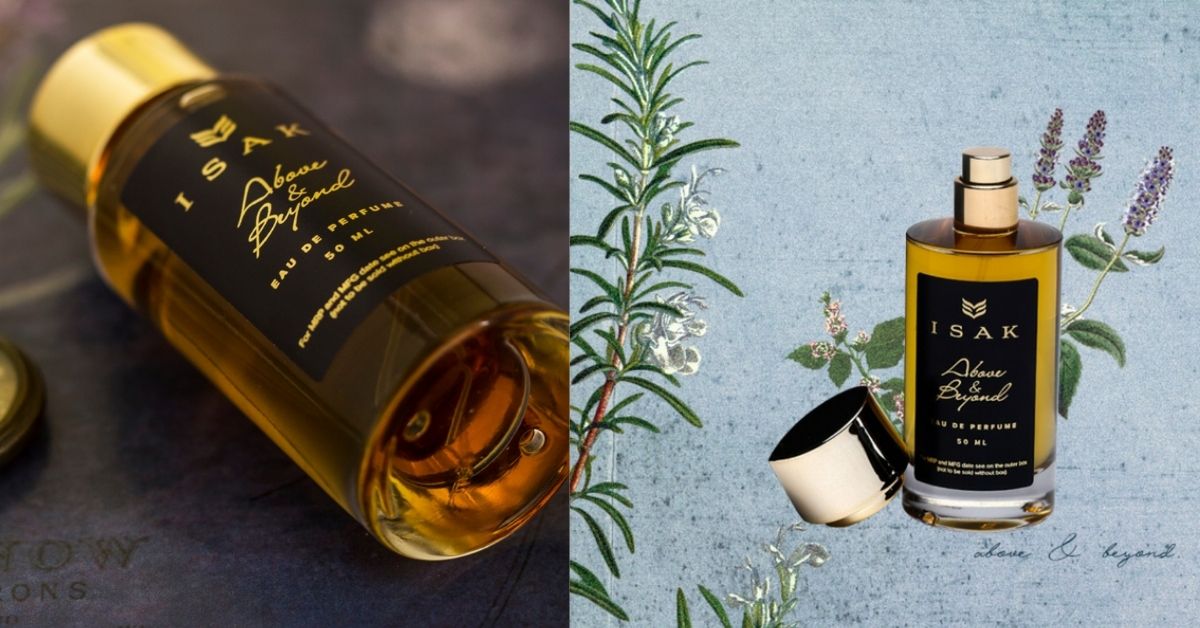
She adds, “We have a rose oil and rose attar. While the ingredient is the same, the smells are very different, owing to the differences in the extraction process. One is fermented, the other is steamed. Rose is one of the most expensive oils, so very few perfumers use such natural ingredients. Same goes for jasmine and neroli flowers. There’s also the gul hina, which is the flower of the henna tree. This gives a very sweet fragrance. Henna is an attar created at the base of extraction, and again, while the ingredient is the same, the smells differ, with henna being a very warm fragrance. It is usually applied at the pulse points during winters, as it’s believed that it keeps the body warm. We also sell mitti, under the name First Rain, which is a calming fragrance that smells like petrichor.”
Vidushi notes that everyone engaged in perfume extractions in India has their own recipes, which are fiercely guarded secrets that, like her own family’s, have been passed down generations. “The crux of the perfume business is the formula and recipe that you use,” she says.
At the onset of the COVID-19 pandemic, the retail sector had taken a hit, which posed a challenge for Isak as well. “Perfumery has everything to do with the nose, so we had to take many workshops and sessions online because you can’t share the ingredients with one another at a time like this. So we introduced the ‘Make Your Own Perfume’ Kits so people could learn about different fragrances and how to use them themselves. The wedding market also opened for us. Owing to the restrictions, wedding budgets reduced, which worked in our favour. Also, since the weddings were smaller, they could do more customised collections.”
On what advice she would like to give women who wish to start their own businesses, but feel bogged down but preconceived notions of what they can and cannot do, Vidushi says, “I feel like women don’t get the same kind of support that men would when starting out on their own. So it’s important to have patience and strength in such times. As women, we’re always told to depend on others, so I’d say that try to learn all the ropes of your profession so you’re not depending on anyone else. A small start also counts as a big change.”
For more information or to place orders, you can visit Isak’s website.
Edited by Vinayak Hegde
This story made me
- 97
- 121
- 89
- 167
Tell Us More
We bring stories straight from the heart of India, to inspire millions and create a wave of impact. Our positive movement is growing bigger everyday, and we would love for you to join it.
Please contribute whatever you can, every little penny helps our team in bringing you more stories that support dreams and spread hope.






